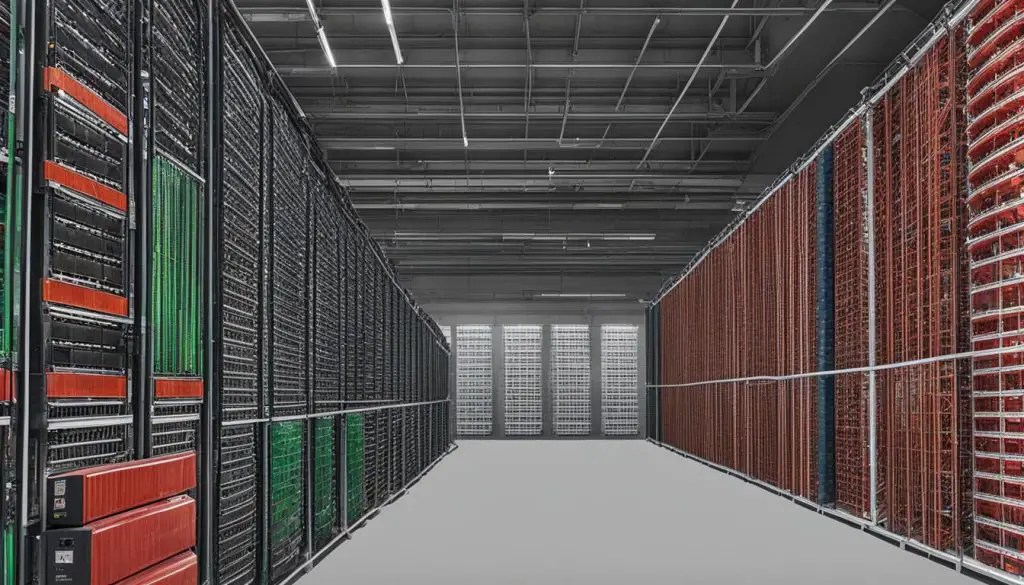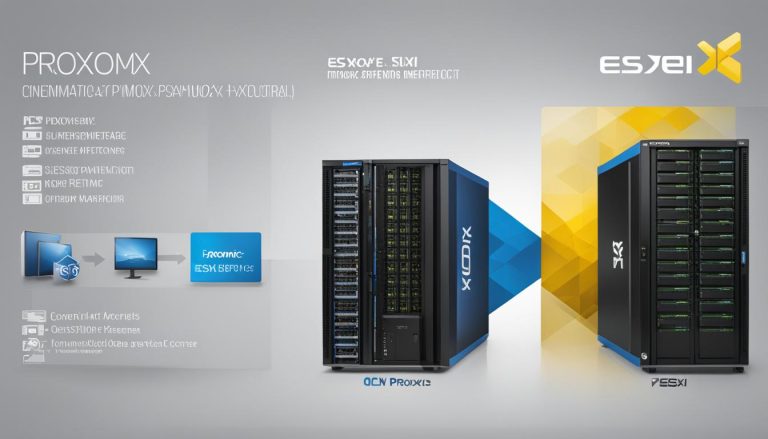What is HTTPD: Your Web Server Explained
As a web developer or someone interested in understanding web technologies, you may have come across the term HTTPD. But what exactly is HTTPD? In this article, I will provide a comprehensive overview of HTTPD, its definition, meaning, and how it functions as a web server. Whether you are a beginner or an experienced professional, this tutorial will guide you through the basics of HTTPD and provide you with the necessary knowledge to work with this essential web server component.
Key Takeaways:
- HTTPD, short for HyperText Transfer Protocol Daemon, is an open-source web server software.
- Apache HTTP Server, commonly known as Apache, is the most popular HTTP server on the web.
- HTTPD is a crucial component of the LAMP stack, which includes Linux, Apache, MySQL, and PHP.
- Apache HTTP Server is highly customizable, scalable, and supports features like SSL, server-side programming, and load balancing.
- HTTPD can be deployed on various operating systems, making it a versatile choice for web hosting.
What is Apache Web Server?
Apache Web Server, also known as Apache HTTP Server, is a powerful open-source software that enables the delivery of web content through the HTTP protocol. Developed and maintained by the Apache Software Foundation, Apache is a versatile web server that operates on a modular architecture, allowing for customization and the addition of specific functionality through modules.
As a background service, Apache listens for incoming server requests and efficiently serves web assets and content via HTTP. Its robustness, scalability, and extensive community support have made it a popular choice among best-in-class companies and organizations worldwide. In fact, Apache is currently used by over 67% of all web servers globally, solidifying its position as the leading web server software.
One remarkable feature of Apache is its compatibility with various operating systems, including Linux, MacOS, and Windows. This adaptability makes it suitable for different environments and ensures a seamless integration process. Whether you’re running a personal blog or managing a complex enterprise application, Apache can cater to your needs with its wide range of capabilities.
Apache, often referred to as HTTPD (HyperText Transfer Protocol Daemon), has cemented its reputation as a reliable and high-performance web server. Its modular design allows for the addition of loadable dynamic modules, enabling developers to tailor Apache’s functionality to suit their specific requirements. The flexibility and versatility of Apache have contributed to its enduring popularity in the web development community.
Features of Apache Web Server
Apache Web Server offers a rich set of features that further enhance its functionality:
- Static file handling: Apache efficiently serves static files, ensuring speedy delivery of web assets to users.
- Loadable dynamic modules: Customize Apache’s capabilities by adding loadable dynamic modules, expanding its functionality as needed.
- .htaccess configuration: Apache’s .htaccess file allows for easy configuration and customization, providing developers with greater control over their server’s behavior.
- IPv6 compatibility: With support for IPv6, Apache remains up-to-date with the latest advancements in internet protocol, ensuring seamless communication in modern network environments.
- HTTP/2 support: Apache is compatible with the HTTP/2 protocol, which enhances website performance and efficiency, leading to improved user experiences.
Apache Web Server also offers additional functionalities such as FTP connections, Gzip compression, bandwidth throttling, and support for scripting languages like Perl, PHP, and Lua. It further provides advanced features like load balancing, session tracking, URL rewriting, and geolocation based on IP address.
Apache’s commitment to ongoing development and improvement reflects its enduring relevance in the web server landscape. The Apache Software Foundation continues to explore opportunities for integration with cloud platforms, resource management, and further enhancing user experiences. Through these efforts, Apache remains at the forefront of innovation, driving the evolution of web technologies.
| Apache Web Server | Market Share |
|---|---|
| Apache | 67% |
| Nginx | 26% |
| Microsoft IIS | 7% |
Apache Web Application Architecture
When it comes to building web applications, Apache plays a crucial role in the overall architecture. It is part of the widely-used LAMP stack, which stands for Linux, Apache, MySQL, and PHP.
Linux serves as the operating system that handles the application’s operations, while Apache acts as the web server responsible for processing requests and serving web assets and content through the HyperText Transfer Protocol (HTTP).
MySQL, on the other hand, is the database system that stores information in a queryable format, allowing web applications to retrieve, manipulate, and manage data efficiently. PHP, as a server-side scripting language, works seamlessly with Apache, enabling developers to create dynamic web content.
Although web applications may vary in their functionalities and purposes, they often share similar architectural structures. In addition to the core LAMP components, other elements such as Firewalls, Load Balancers, Web Servers, Content Delivery Networks (CDNs), and Database Servers can be integrated to enhance the application’s functionality, performance, and security.
It is worth noting that separating the database and application servers is a recommended practice, as it allows for better scalability, performance optimization, and improved security measures.
Web Server Landscape
The web server landscape comprises various technologies, with Apache being one of the most popular web servers in the industry. Back in the late 90s and early 2000s, Apache dominated the market, serving over 50% of active websites. However, the current market scenario shows Apache holding just under 40% of the market share, with NGINX as the second most popular web server. Microsoft IIS holds around 8-10% of the market.
The web server landscape is constantly evolving with advancements in technology and the emergence of new servers. This dynamic environment ensures that web servers can adapt to changing user needs and technological advancements. As a result, web developers and system administrators have a variety of options to choose from when selecting a web server for their applications.
Let’s take a closer look at the current market share of web servers:
| Web Server | Market Share |
|---|---|
| Apache | ~40% |
| NGINX | ~30% |
| Microsoft IIS | ~8-10% |
| Others | Remaining market share |
Source: SEO Writing AI
It’s important to note that these market shares are subject to change as technology evolves and new solutions emerge. Organizations and developers need to stay updated with the latest developments in the web server landscape to make informed decisions and choose the most appropriate solution for their specific needs.
Features of Apache Web Server
Apache offers a wide range of features that contribute to its functionality and versatility as a web server. Let’s explore some of its key features:
Static File Handling
Apache excels at handling static files, allowing for efficient delivery of web content such as HTML, CSS, JavaScript, and images. It ensures smooth browsing experiences for users accessing your website.
Loadable Dynamic Modules
One of Apache’s strengths lies in its ability to load dynamic modules, which enhance its functionality and adaptability. These modules provide additional features and enable customization to suit specific website requirements.
.htaccess File
The .htaccess (hypertext access) file is a powerful configuration file that allows you to customize and control Apache’s behavior on a per-directory basis. It provides flexibility in managing website settings and permissions.
IPv6 Compatibility
Apache is fully compatible with IPv6, the latest version of the Internet Protocol. This compatibility ensures seamless connectivity for websites that adopt IPv6 addressing, enabling broader reach and improved network functionality.
HTTP/2 Support
Apache supports the advanced HTTP/2 protocol, which offers enhanced speed, efficiency, and performance compared to its predecessor, HTTP/1.1. HTTP/2 improves website loading times, resulting in an improved user experience.
Additional Features
- FTP Connections: Apache provides built-in FTP capabilities for secure file transfers.
- Gzip Compression: Apache supports gzip compression, reducing file sizes for faster transmission and improved bandwidth utilization.
- Bandwidth Throttling: Apache allows you to control and limit the amount of bandwidth used by specific applications or users, ensuring fair usage and optimal performance.
- Scripting Language Support: Apache supports popular scripting languages like Perl, PHP, and Lua, enabling the development of dynamic web content.

Apache also provides advanced functionalities such as load balancing, session tracking, URL rewriting, and geolocation based on IP address. These features add flexibility and scalability to your web server setup, enabling you to build robust and efficient web applications.
With its comprehensive feature set, Apache remains a popular choice for individuals and organizations seeking a reliable and customizable web server solution.
Conclusion
Apache has been a cornerstone in many web technology stacks, playing a significant role in the growth of the internet. Despite a slight decline in popularity over the years, Apache remains a vital technology in various technology stacks and system infrastructures.
One of Apache’s key strengths is its scalability, modularity, and customization options, making it a versatile choice for a wide range of web hosting scenarios. With the constantly evolving web server market, new technologies and servers emerge regularly, but Apache continues to adapt and meet the changing needs of web developers and businesses.
Efforts are underway to enhance Apache’s performance, security, and user-friendliness. Future developments will focus on seamless integration with cloud platforms, efficient resource management, and an enhanced user experience. Apache’s commitment to continuous improvement ensures its relevance in the ever-changing web server landscape.
FAQ
What is HTTPD?
HTTPD stands for HyperText Transfer Protocol Daemon. It is an open-source web server software that delivers web content using the HTTP protocol.
What is Apache HTTP Server?
Apache HTTP Server, commonly referred to as Apache, is a free and open-source web server that delivers web content through the internet. It is the most popular HTTP server on the web.
What is the LAMP stack?
The LAMP stack is an acronym for Linux, Apache, MySQL, and PHP. It is a common web application architecture that includes Linux as the operating system, Apache as the web server, MySQL as the database, and PHP as the programming language.
What is the role of Apache in a web application stack?
Apache is the web server component of a web application stack. It processes incoming requests and serves web assets and content via HTTP.
What other components can enhance a web application’s functionality?
Additional components like Firewalls, Load Balancers, Web Servers, Content Delivery Networks (CDNs), and Database Servers can enhance a web application’s functionality, performance, and security.
Is Apache customizable?
Yes, Apache is highly customizable. It operates on a modular architecture, allowing for customization and adding specific functionality using modules.
What operating systems can Apache run on?
Apache can be deployed on different operating systems like Linux, MacOS, and Windows. It is a versatile choice for different environments.
What are some features of Apache Web Server?
Apache Web Server supports features like SSL, server-side programming support (PHP), load balancing configurations, FTP connections, Gzip compression, bandwidth throttling, and scripting languages like Perl, PHP, and Lua.
Is Apache widely used?
Yes, Apache is used by over 67% of all web servers globally. It is a popular choice among best-in-class companies.
How does Apache compare to other web servers?
In the late 90s and early 2000s, Apache dominated the market, serving over 50% of active websites. Currently, Apache holds just under 40% of the market, with NGINX in second place and Microsoft IIS holding around 8-10% market share.
What does the future hold for Apache?
Apache continues to evolve to meet changing needs. Future developments focus on integration with cloud platforms, resource management, and enhancing the user experience.
- About the Author
- Latest Posts
Janina is a technical editor at Text-Center.com and loves to write about computer technology and latest trends in information technology. She also works for Biteno.com.






